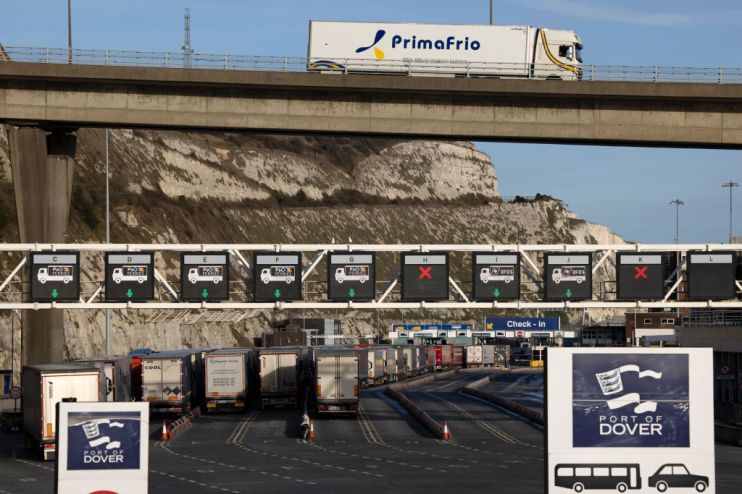Brexit red tape onslaught deepens as UK economy loses £47bn because businesses drown in cross-border tax complexities

Cross-border tax complexities cost the UK economy £47.6bn in lost revenue last year, an average revenue loss of 16 per cent on total EU exports, according to fresh industry data shared with City A.M. this morning.
The stresses of navigating complex regulations post-Brexit continues to hold back growth for UK exporters, and is causing significant anxiety for business leaders, according to tax compliance technology company Avalara, analysing recent data from the Centre for Economics and Business Research (CEBR).
Complexity
As the economy works to recover post-pandemic, many UK businesses remain optimistic for future European growth opportunities, with nearly three quarters (72 per cent) of respondents stating they have plans to expand to at least one more EU market.
Yet, in practice, the weight of compliance burdens and the realities of sweeping EU tax reforms on sales from outside the bloc appear to be impacting these plans.
Just under a third (32 per cent) of respondents currently exporting to the EU are planning to exit at least one market, and 3 in 5 (62 per cent) of businesses revealed that the fear of being fined for tax compliance has recently caused them to reverse plans to sell goods in a European country.
With little set to change in terms of the levels of tax compliance obligations on UK exporters, the research predicts that the investment loss due to cross-border tax complexity is expected to result in a further £16.1bn of value lost to the UK by 2026.
“From the toll of Brexit-based regulation changes, to the uncertainty of the pandemic, anxiety levels have been skyrocketing as tax complexity has become a major red tape headache causing business leaders many a sleepless night,” said Alex Baulf, Senior Director of Global Indirect Tax at Avalara.
Baulf told City A.M. that “the compliance burdens on businesses are becoming almost unmanageable, and the fear of falling foul of compliance standards is hampering growth opportunities for British exporters. This is hurting the economy.”
He added that “businesses need greater support and clarity from regulators to help them navigate these changes and remove hurdles, and must invest in digitisation to take more of the administrative and compliance burden away.”
Nina Skero, Chief Executive at Cebr, said in additon that: “If the EU was part of the domestic market, exporters were set to make just over £300bn in revenue, instead of the £252bn they actually earned.”
In addition to these missed sales to the EU, the export activity which does take place comes with a higher administrative burden which led to an additional loss of £386m in gross value added (GVA) last year, Skero stressed.
“These firm-level losses are impacting economic growth prospects, preventing an estimated £8.7bn worth of investment which could support GDP by a further £16.1bn in the longer-term.”
She explained that “this means that if UK businesses were unhindered by EU cross-border tax complexity UK GDP in 2026 could be 0.63 per cent higher,” he noted.
Sleepless nights
Change is uncomfortable at the best of times, but the constant flow of new regulations and the increased amount of work to stay compliant is causing significant stress for business leaders.
A third of those surveyed (33 per cent) said they had lost sleep more than once due to anxiety caused by tax and compliance issues, with almost two thirds agreeing that staying compliant with tax obligations and regulations is the most stressful thing about running their business.
The anxieties weighing on leader’s minds include fearing the legal consequences of non-compliance (49 per cent), worry over the complex terms and conditions they need to navigate (43 per cent), concern that keeping up with compliance means they will lose time needed for other tasks (33 per cent), and the fear of fines (31 per cent).
The time spent on administrative tax tasks in particular is damaging productivity, with the research estimating that this caused a loss of £386m in gross-value added (GVA) overall.
To reduce the administrative burden of compliance, businesses are increasingly investing in technology to free up capacity and automate these processes.